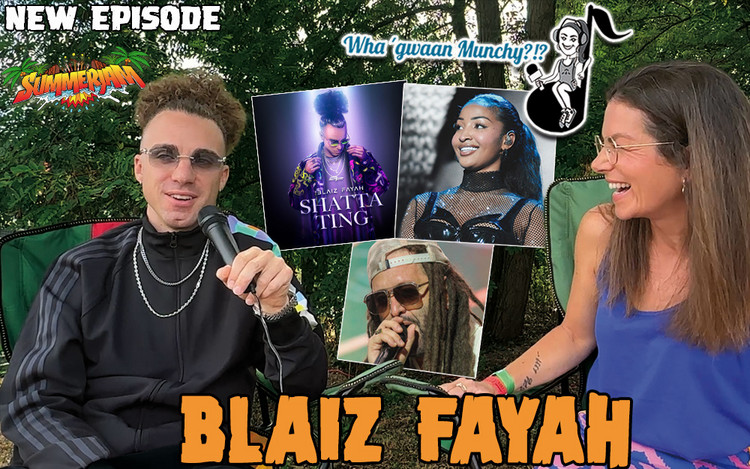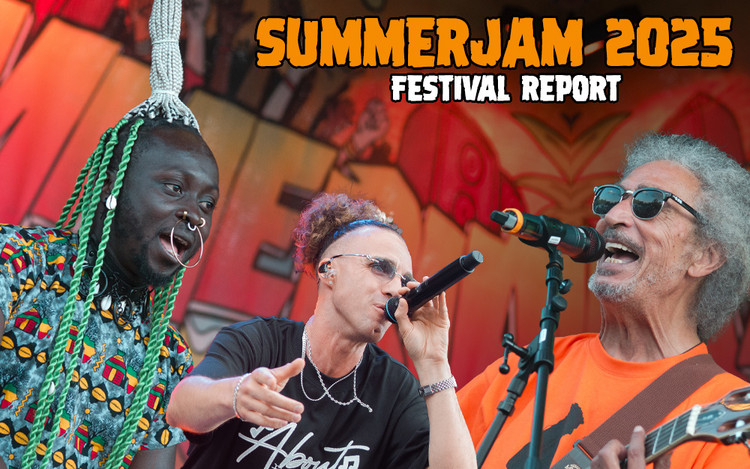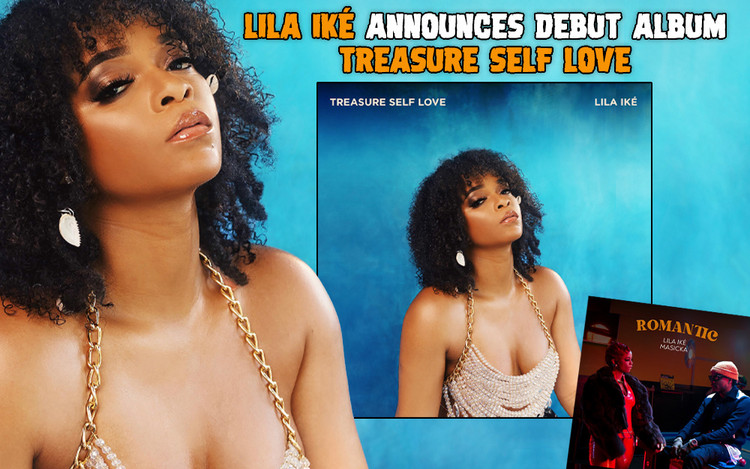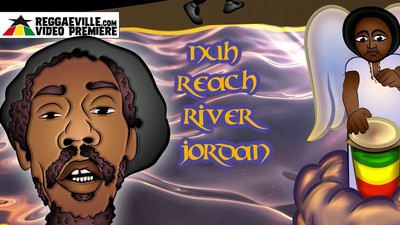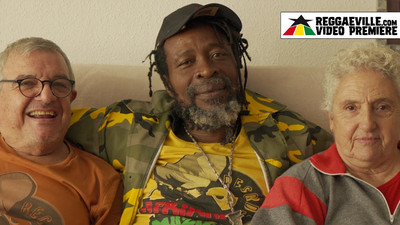Jimmy Cliff ADD
Interview: Jimmy Cliff - Rebirth
07/15/2012 by Angus Taylor
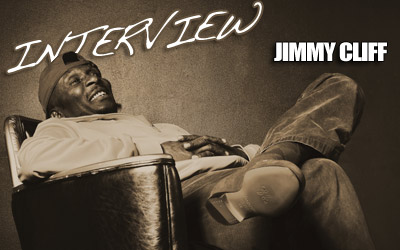
The first legend of music Reggaeville encounters when entering the West End's plush epicurean Sanctum Hotel to interview Jimmy Cliff is not Jimmy himself - but a large gaudy stain glass panel depicting Jimi Hendrix. A fortuitous meeting, as Jimmy and Jimi became friends in the mid sixties while they were both strangers abroad, trying to shop their then unknown music in the cold ramparts of the United Kingdom.
 Now Jimmy is back in his former home to promote his new album Rebirth, produced by Tim Armstrong of the punk group Rancid, the follow-up to their Sacred Fire taster EP which was released last year to critical acclaim. The love fans feel for Cliff, the man who took Reggae international for a whole generation through his music and the film The Harder They Come, has never dimme. Yet critical acclaim has been a fair weather friend due to his restless, experimental nature and his eclecticism (whereas Bob Marley, the youth he helped get a start at Leslie Kong's Beverley's Records, was always, whether philosophically or in marketing terms, a consistent brand).
Now Jimmy is back in his former home to promote his new album Rebirth, produced by Tim Armstrong of the punk group Rancid, the follow-up to their Sacred Fire taster EP which was released last year to critical acclaim. The love fans feel for Cliff, the man who took Reggae international for a whole generation through his music and the film The Harder They Come, has never dimme. Yet critical acclaim has been a fair weather friend due to his restless, experimental nature and his eclecticism (whereas Bob Marley, the youth he helped get a start at Leslie Kong's Beverley's Records, was always, whether philosophically or in marketing terms, a consistent brand).
Today, with his album, which revisits the Kong era, , and with the 50th anniversary of both Jamaican independence and Jimmy's debut studio session, it feels like everything has come full circle. We find Jimmy sitting at the Sanctum's wood panelled restaurant, dressed in a red string sweater wearing glasses with red rims. He orders a coffee and a sparkling water with no ice and we begin...
How does it feel to be back in London where you lived during the late sixties?
In one way it's like coming home. Because when you spend a good deal of time of your life in a particular place you've planted roots which can't just be uprooted. You have to come back and look at the places you used to know and say "Oh that's changed! That's still the same! Have they got that there now? OK!" So you just familiarize yourself again and it's like my second home. It's changed a lot. If you take certain parts like say Kensal Rise and all those areas where the markets are. There never used to be all the markets! Notting Hill Gate has changed a lot in terms of people, in terms of housing, architecture but the energy is the same.
There's a picture of Jimi Hendrix in the reception area of this hotel. Tell me about meeting Jimi Hendrix in Britain for the first time...
I used to play the clubs. I think I was playing in Nottingham. A week before my gig they asked me "Y'know there's this new guitarist... do you mind if he opens for you?" It wasn't like a real opener because I used to do two sets so they said "Do you mind if he does one set in between your two?" I didn't mind, I didn't know him, but when he came to the club I had just finished my first set so when I came off he came to me and said "What's the name of your band man?" I said "Jimmy Cliff and the Shakedown Sounds" He said "Maaaaan... you can sing! I can't sing. I can just play my guitar" (laughs) Apparently he didn't have all that much confidence in his singing! But then he went on and he tore the place up! After that we became pretty close. Every time we were coming back from a gig up north or down south, we'd stop at café and talk about how our gigs went and how things were going. He was one of the kindest people you could ever find.
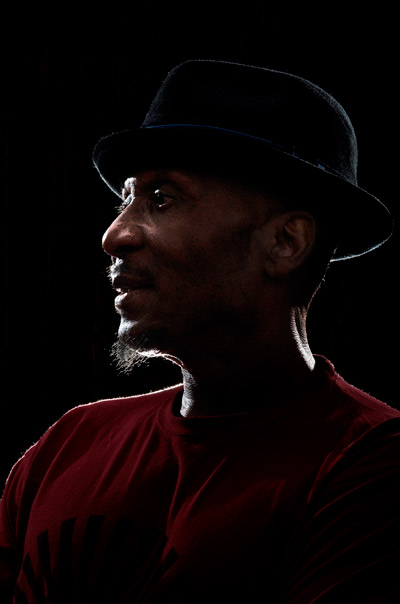 In the marketing for your new album it says it's been 50 years since you first stepped into a recording studio. Tell me about your first session...
In the marketing for your new album it says it's been 50 years since you first stepped into a recording studio. Tell me about your first session...
My first session was at Federal Studios in Kingston and that was quite a memory! The first time you step into a recording studio with all those musicians and you hear the band strike up it sends certain chills through your body! And you know? I still get the chills even now when I hear the band strike a chord! So I still even now feel enthusiastic about what I do - both the thrills and the chills! (laughs)
It's also 50 years since Jamaican Independence. What are your memories of that time in Jamaica?
It was a celebratory mood. People were very upbeat because I think the majority of people didn't really know what independence was but everybody felt like celebrating! It was very festive. I remember I was still recording with Leslie Kong and Derrick Morgan wrote a song called We're Independent that was a huge hit. And because we were with the same label we did some concerts around the country so it was all a very festive mood.
London has just had its International Ska Festival at the start of May. I wondered if you could share your memories of the 1964 New York World's Fair - which brought ska (and you!) to the world.
Ah! That was a good memory for me because it was my first time outside of Jamaica, performing in the United States. Even though the band wasn't a really "ska" band because it was Byron Lee and the Dragonaires who weren't people who really loved ska. But that was the chosen band!
They were like a sort of versatile hotel band?
Exactly! However, my performance went down excellently because I read in the music magazines that they said a lot of nice things about me so it was a very good experience.
You've travelled the world over. Where has been your favourite place to visit?
I don't think there is one. But I really love Africa. Even before my consciousness of Africa, when I first went there I just loved the country, I just loved the feeling, I just loved the energy. Even though I had some bad experiences! My first time in Nigeria was not such a good experience! However, I still loved the country and when I went back it was great! (laughs) If I had to choose one I would probably choose Africa.
I'm glad you mentioned Nigeria. The success of The Harder They Come Musical which puts a lot of your life up on the big stage (even though it is ostensibly about someone else) has surely been a huge inspiration for the success of Fela! The Musical. And you knew Fela Kuti personally, having met him in Lagos in 1974 where, as you alluded just now, you were arrested at the behest of an angry promoter!
On that first occasion when I went to Nigeria I met Fela - and the way we met was really kind of strange! Because the promoters were trying to keep me away from Fela. I don't know why? Maybe they didn't want two revolutionaries to meet! (laughs) I toured all the way up to the North - up to Kano Kaduna - and then back down to the South in Lagos where I was doing a concert at the stadium. Everything was going well until I saw the crowd kind of start to get jittery. Then from the back of the stadium - because people weren't just sitting in the seats, they were standing in the open ground - I saw the crowd parting and moving away. It was Fela and like one hundred of his people following him! (laughs) When I realized that I said "Welcome my brother Fela Ransome Kuti!" and the crowd went (makes whistling sound to denote going silent) and he stopped all his guys and he stood there and stayed until my show was finished. Then he sent a message to me saying "Can we meet tomorrow at the Kalakuta?" [Fela's compound] and I sent back message saying "I will see you". When I went the meeting was great! He was a very intense person. He believed in what he was doing. But I loved his music. I wasn't familiar with his music before I stayed at the Kalakuta that night but I loved it. It was just the way he was - very intense - because he believed in what he was doing because he was a great artist.
I must also ask about your time in Brazil - which you first visited in 1968 and returned to several times. You had a huge impact on the local music there but how did it also impact on you?
Brazil was another special place. When you asked me about which places I liked - the second one might have been Brazil. But Brazil was kind of a love and hate. Love for the country and the people but hate for the system. Because it was a military system at that time. I had a song called Waterfall which I sang at a festival [the third annual song festival in Rio] and it went fantastically. So the people fell in love with me and I fell in love with the people. That time I didn't get to meet Gilberto Gil or Caetano [Veloso] but I had met them over here in London prior to going there. They were the ones who really introduced reggae to Brazil because they came over here and heard the music and then brought it there. But Brazil is such a musical country that you can't help but pick up on some of the music they have there so I think some of their music came out and I incorporated it.
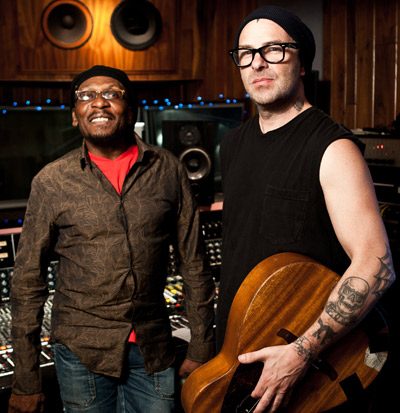 Tell me about how you met Tim Armstrong and decided to work on your Sacred Fire EP and album Rebirth.
Tell me about how you met Tim Armstrong and decided to work on your Sacred Fire EP and album Rebirth.
I knew about Tim Armstrong via Joe Strummer of The Clash. Because on my last album [Black Magic] the last song Joe Strummer ever did was with me over here. So when the suggestion came up from my managers in California that I work with Tim, I remembered Joe talking about him. We talked on the phone and everything felt good. I'd seen some of his shows on the internet and heard a bit of his music and then when we met in the studio everything kind of just flowed.
The sound of what you did on the EP and album goes back to the Leslie Kong/Warwick Lyn sound that you helped popularize in the late sixties and early seventies.
This LP is like a completion of a cycle that I had not yet completed. Because when I did the Wonderful World, Beautiful People album, the album that followed it [Come Into My Life] was not a reggae album. I went to Muscle Shoals and completed it there and a lot of people thought "Why isn't he following the same trend of reggae that he actually started? Why did he go to Muscle Shoals and do that kind of music there?" So that cycle was not completed and this album for me represents completing that cycle. Yes, it goes back to that sound because Tim Armstrong and all the musicians that he used knew that sound so well. They knew the instruments that were used - they actually found the instruments that were used then for us to use now! (laughs) So we captured the same sound, we recorded the same way - live. They were playing, I was singing, so it's the same sound.
Punk music and reggae have a long history together. And it's a history you played a crucial part in when you recommended your backing singer Aura Lewis to sing on Bob Marley and Lee Scratch Perry's Punky Reggae Party back in 1976. It wasn't the first time you'd helped Bob. You helped him cut his first tunes Judge Not, Terror and One Cup Of Coffee for Leslie Kong at Beverleys back in 1962.
Well because I knew the relationship between reggae and punk I just thought it would be a good mixture, since the song was about a Punky Reggae Party. So I just recommended her and it worked! I had my career and had number one hits before Bob Marley started so when Desmond Dekker came to Leslie Kong I was the kind of A&R person. I tested about three songs from Desmond Dekker and I chose one - Honour Your Mother & Your Father - and he got that song recorded. Now Desmond used to work with Bob at a place as welders so he went back and told Bob "I met this guy Jimmy Cliff and I got my song recorded. I think you should go and see him" - that's what Desmond was telling me. So Bob came down and sang his songs. I chose three of them, and that was the beginning of his career.
You've helped a lot of artists since - from Ini Kamoze to Mutabaruka. Who has helped you the most in your career?
A combination of people. Leslie Kong was a good help because he believed in me. I think Chris Blackwell was a good help because he believed in me. I think David Sonenberg was a good help because he believed in me! (laughs) So mainly, in one's life, when somebody has some confidence in you - that encourages you and helps you a lot. Those are the people - more than I would say musicians, although musicians like Ernest Ranglin showed me some things on guitar as did Chinna Smith and lots of them - but I think it was the managers I had who were quite good.
Another group you have collaborated with in a live situation are the Philadelphia live hip hop band The Roots. How did you link with them? And will you ever put an album out with them?
I knew The Roots from a long time ago when I used to visit Philadelphia a lot. At the time they were an up and coming group but I liked their energy and I liked their mentality. They called themselves The Roots and at that point in society we were all trying to find our roots so we had all of that in common - plus they were really, really good musicians! We thought of doing a record together. I just have never really found the time to put it together.
The reason I ask is that they did a wonderful album of covers of soul protest songs with John Legend - Wake Up Everybody. As a master of the protest song, wouldn't it be great to work on a similar project like that with them?
Yes! We thought about it and I don't know - it still might happen. I recently did a Jimmy Fallon show in New York which they played on, and we still talk so it might still happen!
On the subject of protest and protest songs, you are playing on July 15th in Hyde Park with Paul Simon who was famously inspired by your song Vietnam to travel to Jamaica to work with Leslie Kong's musicians on his track Mother and Child Reunion in 1971. A decade later you would both defy the boycott and go to South Africa. Paul Simon famously said of his decision that he was on the side of "the guys with guitars." Not "the guys with guns". Do you feel the same way?
For me going to South Africa was a continuation of my work. Because my songs were inspiration and motivation for South African people who were fighting against apartheid. For me going there was just a continuation of that. I played in Soweto and Durban and Capetown, in the ghettos, to a mixed audience. For some reason they allowed all the people to come to my concerts so maybe that was the beginning of the breakdown of apartheid. It's one of the memories in my career that stood out and will always stand out and impact on me. It impacted on me because of how it was. I had experienced racism but not in that sense where you'd see "blacks only" "whites only" - even though I was treated as an "honorary black" or something like that! (laughs) The whole experience for the two weeks I was there was very intense. I remember my crew was white and my band was black and when we were doing soundcheck they were throwing things on stage at my crew! So we all wondered "How is it going to work out for the show?" because we didn't know. Then for the stadium show the place was packed. And the minute the first note struck everything just went calm and the show went great. So that was a great experience.
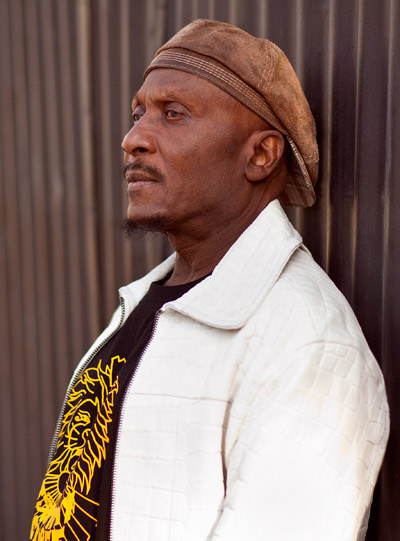 Reggae music is often associated with Rastafarianism. But you, despite not being publically associated with Rasta had links people like Mortimer Planno and to Prince Emmanuel Edwards of the Bobo Ashanti long before anyone had even heard of Sizzla or Anthony B.
Reggae music is often associated with Rastafarianism. But you, despite not being publically associated with Rasta had links people like Mortimer Planno and to Prince Emmanuel Edwards of the Bobo Ashanti long before anyone had even heard of Sizzla or Anthony B.
Yes. Exactly. I grew up as a Christian and my family were Christians so you know, I followed. But I also questioned, and then, by questioning I found Rasta. In my village in Somerton, there was a brethren who was a Coptic, and after Coptic I came to Kingston and lived in West Kingston where Prince Emmanuel was over at Back'O'Wall and Mortimer Planno was also his secretary there. So Rasta gave me a sense of what I was looking for, my roots, and what the organized religion of Christianity or Islam could not give me. So my consciousness of Rasta was and is very beneficial to me.
An unauthorised biography by David Katz came out about you last year. Copeland Forbes your former manager is about to tell all in his autobiography. Would you like to tell your own story in your own book?
Oh absolutely! I will tell my own story in my own book. I have many books to write - which is one of the things I have not started doing yet. But of course, there is my story and then there is another story I want to tell - which is the true story of reggae. Why? Because a lot of the people are heroes but they are unsung. People like Drumbago, Jah Jerry, people know about Lloyd Kibbs because he was part of the Skatalites but there are so many like Easy Snappin', so many of those musicians who helped the artists to become the bright shining stars that they are - yet people don't know the role that they played. So I want to write a book just to highlight those people but that's beside my own story. And yes I definitely will tell my own story because I think my story will inspire and uplift people in any walks of life so I will do that. (laughs)
Last Easter in London a blue plaque was affixed to the house where Dennis Brown used to live in Harlesden. Would you like to see where you lived commemorated in this way?
I never thought of that but maybe that would be really cool! (laughs)
AN ABRIGDED VERSION OF THIS INTERVIEW HAS BEEN PUBLISHED BEFORE IN THE FESTIVILLE 2012 MAGAZINE. READ IT ONLINE OR DOWNLOAD THE PDF FOR FREE @ FESTIVILLE2012.REGGAEVILLE.com




